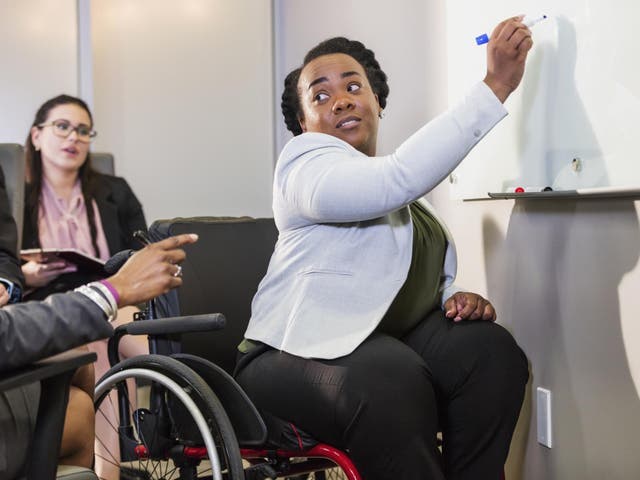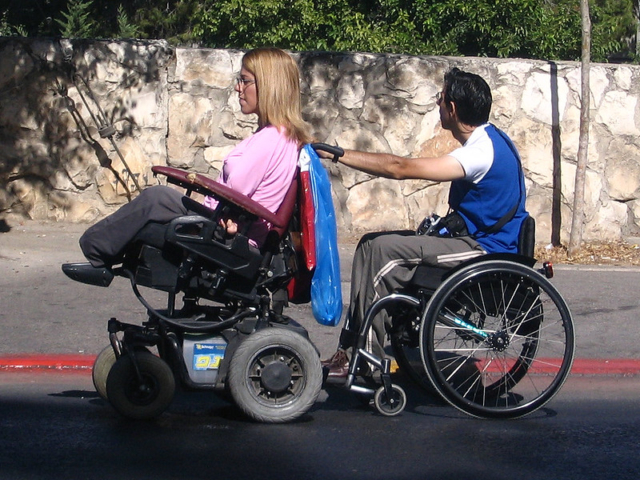Assistive technology, often abbreviated as AT, has emerged as a transformative force, significantly enhancing the lives of individuals with disabilities. In a world where technology is constantly evolving, its applications in the domain of assistive technology have unlocked new possibilities, enabling those with disabilities to lead more independent and fulfilling lives. This article delves into the remarkable ways in which assistive technology is changing the landscape for people with disabilities, offering them increased accessibility, communication, and quality of life.
Understanding Assistive Technology
Assistive technology refers to devices, equipment, or software designed to assist individuals in performing tasks that they would otherwise struggle with due to their physical or cognitive limitations. These disabilities may include mobility impairments, visual or auditory impairments, or cognitive challenges. The primary goal of assistive technology is to level the playing field, providing individuals with disabilities the tools they need to participate more fully in everyday activities.
Enhancing Accessibility
One of the most significant contributions of assistive technology is its role in enhancing accessibility. For individuals with mobility impairments, devices like motorized wheelchairs and adaptive computer interfaces enable them to navigate their environments and interact with technology. For those with visual impairments, screen readers and braille displays make information on computers and the internet accessible. These advancements have not only empowered individuals with disabilities but also promoted inclusivity in education, employment, and social interactions.
Facilitating Communication
Communication is a fundamental human need, and assistive technology has made remarkable strides in ensuring that individuals with disabilities can communicate effectively. Augmentative and alternative communication (AAC) devices, such as speech-generating devices and communication boards, have revolutionized the way individuals with speech and language impairments express themselves. Additionally, text-to-speech and speech-to-text software has made written and spoken communication more accessible for those with hearing or speech impairments.
Promoting Independence
Independence is a key aspect of a fulfilling life. Assistive technology empowers individuals with disabilities by granting them a greater degree of independence. For individuals with mobility impairments, devices like smart home systems and environmental controls allow them to manage household tasks, like turning lights on or off, adjusting the thermostat, and even answering the door with just a few clicks on their smartphone. This newfound independence enhances their quality of life and reduces their reliance on caregivers.

Education and Employment Opportunities
Assistive technology plays a pivotal role in ensuring that individuals with disabilities have equal access to education and employment opportunities. In educational settings, students with disabilities can benefit from screen magnifiers, text-to-speech software, and adaptive keyboards, which enable them to participate fully in the learning process. In the workplace, screen-reading software, voice recognition tools, and ergonomic workstations open up a world of career possibilities for individuals with disabilities, promoting diversity and inclusion.
Overcoming Barriers
The societal stigma surrounding disabilities often creates barriers for individuals with disabilities. Assistive technology is not only breaking down physical barriers but also challenging societal norms by emphasizing the abilities and potential of individuals with disabilities. This paradigm shift has far-reaching implications, fostering a more inclusive and empathetic society. For more articles, information, and resources about the lives of individuals with disabilities, check out this interesting content to learn more.
Conclusion
Assistive technology is a powerful force for good, transforming the lives of individuals with disabilities in profound ways. By enhancing accessibility, facilitating communication, promoting independence, and creating educational and employment opportunities, it is fostering a more inclusive and equal society. The continuous development of assistive technology promises to further improve the lives of individuals with disabilities, offering them the opportunity to thrive and contribute to the world in meaningful ways.











